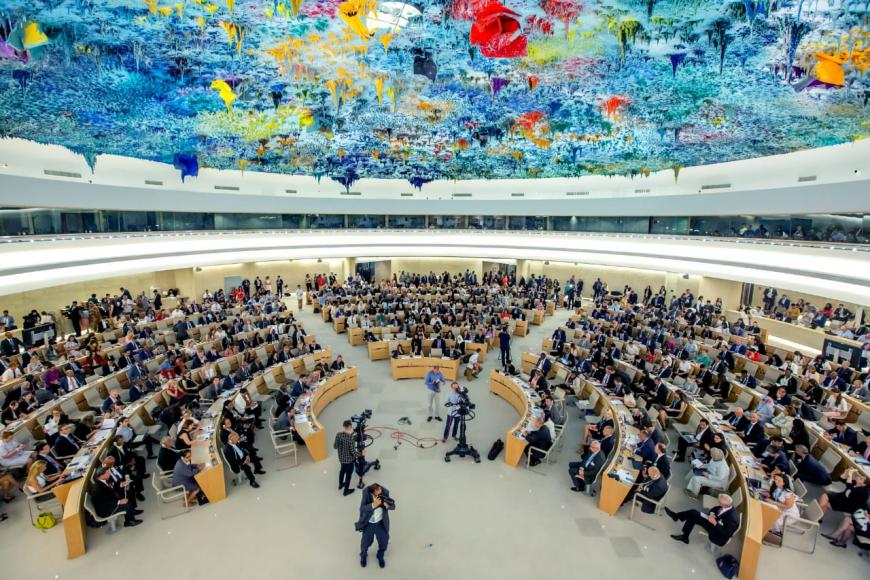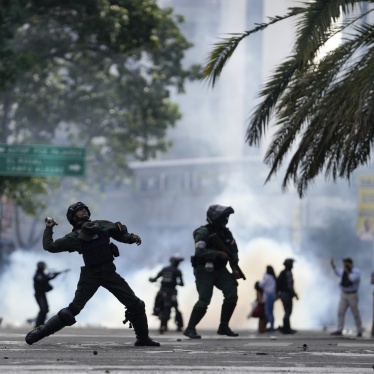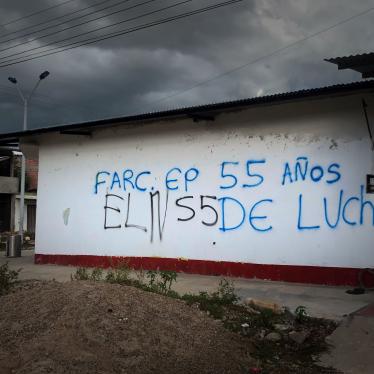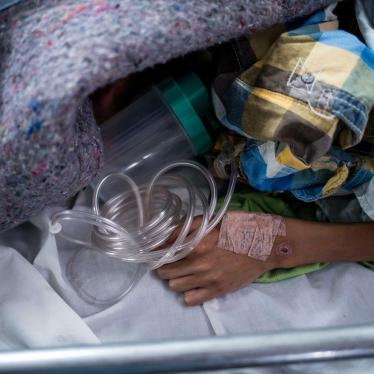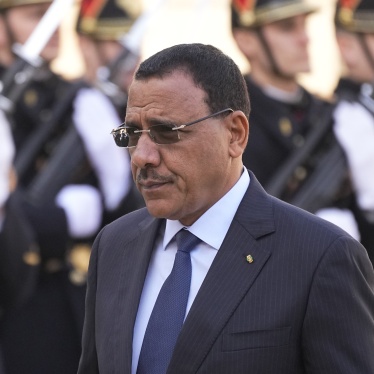(Washington, DC) – The United Nations Human Rights Council should renew the mandate of its Independent International Fact-Finding Mission on Venezuela, 30 national and international organizations defending human rights in Venezuela said today.
The mission can play a key role in pushing for accountability and maintaining international scrutiny amid widespread repression following the July 28, 2024 election, the groups said.
The mission’s team of three experts are scheduled to present their fifth report on September 19 during the 57th session of the Human Rights Council, which will take place between September 9 and October 11. A resolution is needed to extend the mission’s mandate beyond October.
A group of Latin American governments, from across the political spectrum, as well as Canada, have in the past presented a text establishing the mission’s mandate for adoption. If a vote is called by the council’s member states, a simple majority is needed to adopt the text.
In the aftermath of the presidential election, Venezuelans are facing a violent crackdown on voters, protesters, political leaders, journalists, human rights defenders, and other actual or perceived alleged opponents of the Maduro administration, making the need to renew the expert’s mandate especially urgent, the groups said.
The Human Rights Council established the mission in 2019 to investigate “extrajudicial killings, enforced disappearances, arbitrary detentions and torture and other cruel, inhuman or degrading treatment since 2014,” including sexual and gender-based violence, with a view to “ensuring full accountability for perpetrators and justice for victims.” Its mandate has been renewed twice, in October 2020 and 2022.
The mission was one of the first international mechanisms to assert that Venezuelan authorities have committed serious human rights violations as part of a widespread or systematic attack against the civilian population that could constitute crimes against humanity. In its rigorous reports, it has identified mid- and high-ranking authorities, including the head of state, as possibly responsible for human rights violations such as extrajudicial executions, arbitrary detention, torture, sexual violence, and abuses against demonstrators. The mission has also referred to the Venezuelan judiciary’s role in these violations and the state’s repressive tactics, including a plan to repress opposition members or those perceived as such, and the lack of genuine reform of law enforcement institutions.
Millions of Venezuelans participated in the election despite the government’s irregularities and human rights violations that made the playing field uneven. Government authorities arrested opposition members, made stigmatizing speeches, attacked civic space, disqualified candidate, and imposed voting restrictions.
The National Electoral Council asserts that Nicolás Maduro won the election, but a UN Electoral Technical Team and the Carter Center, the only technical observation missions accredited by the council to observe the elections, concluded that the process lacked transparency and integrity. The opposition published online ballot receipts indicating that opposition candidate Edmundo Gonzalez Urrutia had won the election by a significant margin.
Since July 29, Venezuelan public authorities, have activated their repressive policy, violating human rights, including to life, judicial guarantees, and liberty.
Venezuelan security forces, as well as pro-government armed groups, known as “colectivos,” repressed demonstrations against the announced electoral result, leading to reports of over 20 deaths of protesters and bystanders. According to Nicolás Maduro, more than 2,400 people have been detained, including 120 children, considered as those under 18 years of age as per the Convention on the Rights of the Child. Many of those arrested have been charged with ‘terrorism’ and other discretionary crimes.
The Venezuelan justice system, including the Supreme Court of Justice and the Attorney General’s Office, lacks independence and impartiality, as the mission has rigorously documented in its reports.
Other structural conditions that facilitated the commission of grave abuses and prompted the creation of the mission remain unaddressed, including impunity for rights violations, and the lack of judicial independence and redress for victims, the groups said.
By renewing the mission’s mandate, governments would send a clear message to perpetrators that the international community is committed to holding them accountable for their international crimes and ongoing human rights violations as well as to support the struggle of so many victims to achieve truth and justice, the groups said. Ongoing investigations and public reporting by the mission are also essential to prevent further deterioration in a critical post-election period.
Renewing the mandate would allow experts to continue gathering evidence of serious human rights violations, report on current dynamics in the country, analyze their root causes, and recommend international action. It would also allow the mission to support and complement the roles of the Office of the United Nations High Commissioner for Human Rights and the Office of the Prosecutor of the International Criminal Court, which is investigating crimes against humanity in Venezuela.
Discontinuing the mission’s work in such a pivotal moment would have negative implications for the protection of victims, survivors, and the general population, and would provide an incentive for Venezuelan government to continue its violent crackdown on dissent, the groups said.
Signatories:
- Acceso a la Justicia
- AlertaVenezuela
- Amnesty International
- Caleidoscopio Humano
- Centro de Justicia y Paz (Cepaz)
- Centro para los Defensores y la Justicia
- Centro por la Justicia y el Derecho Internacional (CEJIL)
- CIVICUS
- Comité de familiares de víctimas de los sucesos de febrero y marzo de 1989 (COFAVIC)
- Due Process of Law Foundation (DPLF)
- Espacio Público
- Foro Penal
- Freedom House
- Global Centre for the Responsibility to Protect (GCR2P)
- Human Rights Watch
- Ideas por la Democracia
- International Commission of Jurists
- International Federation for Human Rights (FIDH)
- International Service for Human Rights (ISHR)
- Justicia, Encuentro y Perdón
- Laboratorio de Paz
- Observatorio Global de Comunicación y Democracia (OGCD)
- Observatorio venezolano de conflictividad social (OVCS)
- ONG Red Reto
- Programa Venezolano de Educación Acción en Derechos Humanos (Provea)
- Red Electoral Ciudadana (REC)
- Robert F. Kennedy Human Rights
- Voto Joven
- Washington Office on Latin America (WOLA)
- World Organization Against Torture
